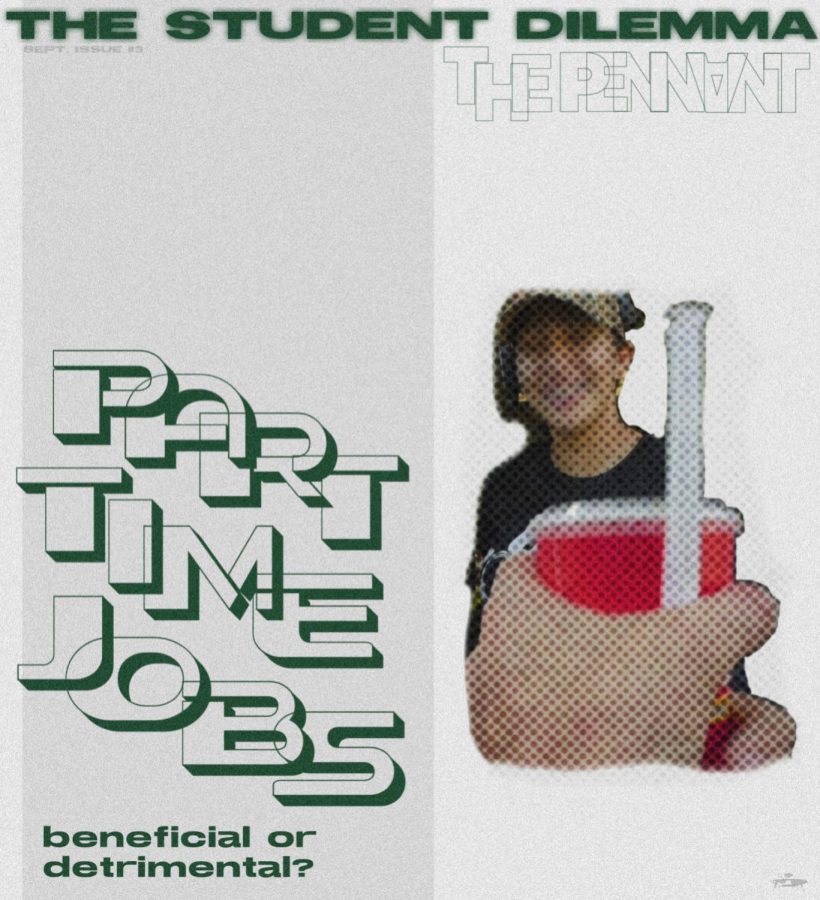Part-Time Jobs: Beneficial Or Detrimental?
September 28, 2022
Entering their adolescence, teenagers tend to be inclined to pursue a part time job. Subsequently, they’re challenged to find a balance between their work, school, and personal life all at once, which proposes the concern: Are part-time jobs beneficial or detrimental to students?
Despite the fact that a remarkable number of teens approach the premise of a job with the same intention, which is income, they’re inevitably gaining more than a salary with each paycheck. A part-time job provides students with independence, self-satisfaction, training, and most importantly…experience. They’re gaining so much at once, while still being active in school, so it’s understandable why so many teens seek a job as soon as they’re able to do so.
Understandably, however, parents begin to worry for their student’s overall health. Sure, the added income is nice, and they’re learning skills for themselves, but how much time does a job consume out of their already tightly packed schedules?
Junior Paige Hager is currently employed and speaks on how tedious a job could potentially get: “I mostly spend all of my time at school or work. For example, I get to school around 8:30 each morning and leave at 3:11 each afternoon. By this time,” Hager continues, “I go home, change into my work uniform, and leave around 4:30 to get to work at 5. I’ll leave work at 11 at night and get home at 11:30–just to do homework for the next couple of hours.” Her schedule goes to show how incredibly busy balancing all three parts of teenage life can get. It goes without saying that she’s incredibly diligent and hardworking, especially considering how she completes side-jobs in her spare time.
Hager works 4-5 days a week, which adds up to 30 hours per week on average. Following that is school and the work that follows, which only leaves her minimal time for her personal life. “I would like more personal time,” Hager laments. “I probably hang out with my friends once a week at most.” As a result of these strenuous efforts, parents and teachers alike can’t help but to wonder whether these aspects affect mental health, or more specifically, contribute to burnout within students.
Hager responds to this concern with her own solution: “It’s been alright, nothing really changed. When I’m feeling down or depressed, I try to distract myself by throwing myself into my work.” It’s a good thing she’s made plenty of close friends at her work, which keeps her occupied and entertained. Having a support group at work is one of the many ways to challenge burnout from the constant hustle of work. It’s important to be humane to every peer, as well, as one is never aware of his or her entire situation.
It’s vital to discuss multiple options when it comes to jobs, whether that be working weekends only or including weekdays, as well. For some others, working only in the summer is the best option. Regardless, students should always choose what is best for themselves and prioritize their well-being.
Although Hager is an astonishing student whose efforts have not gone to waste, it’s necessary for teenagers to approach the topic of a job with caution. Each should take his or her schedule, mental health, and availability into consideration when applying for one. As Hager suggests, “Life is not a race; take each milestone at your own pace.”








